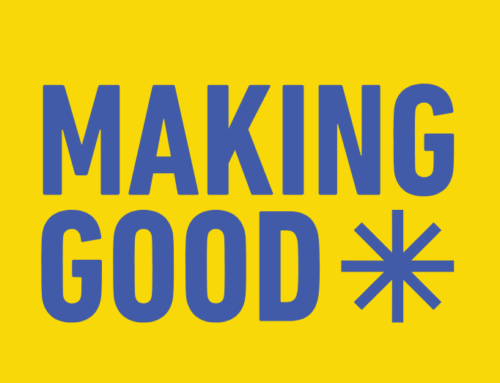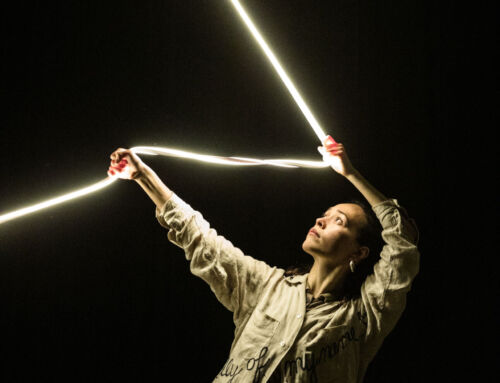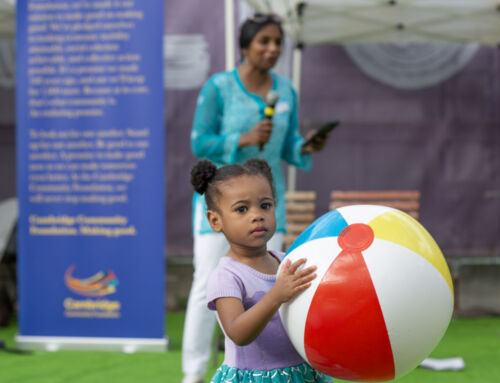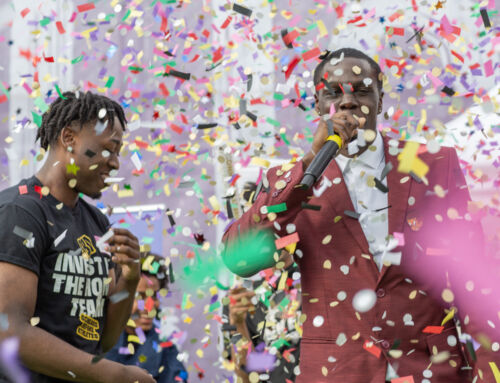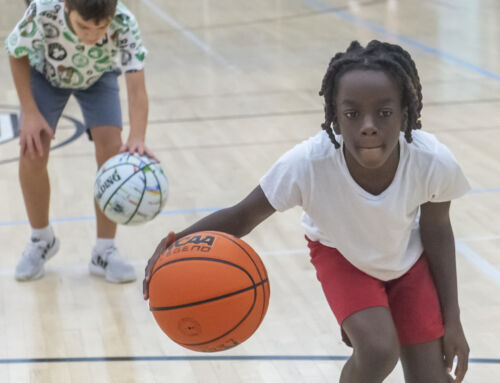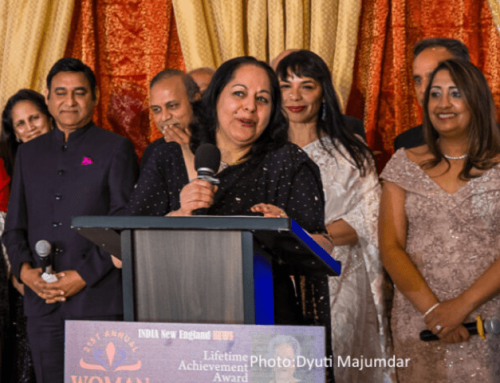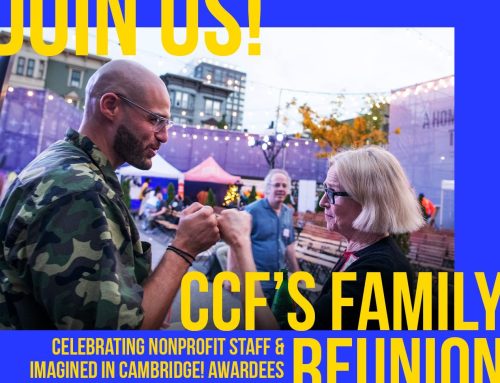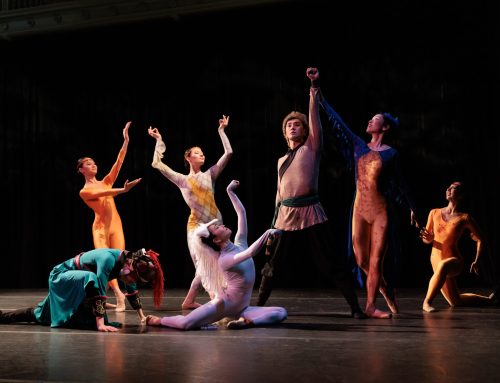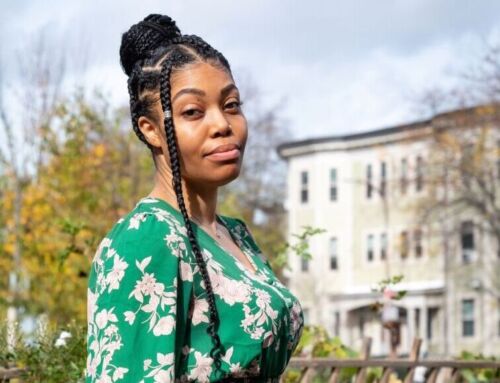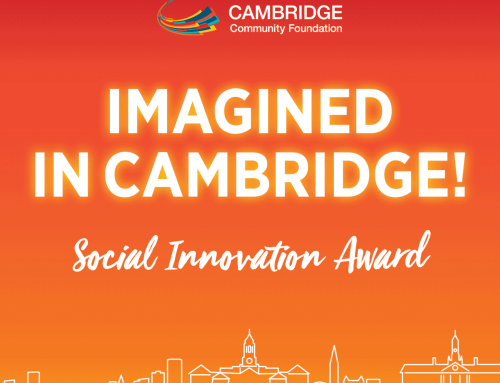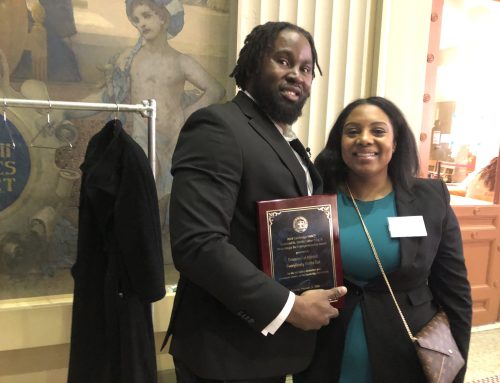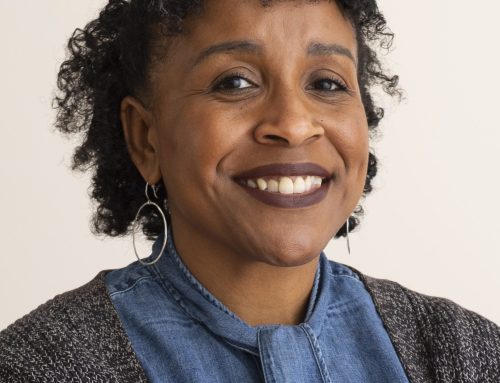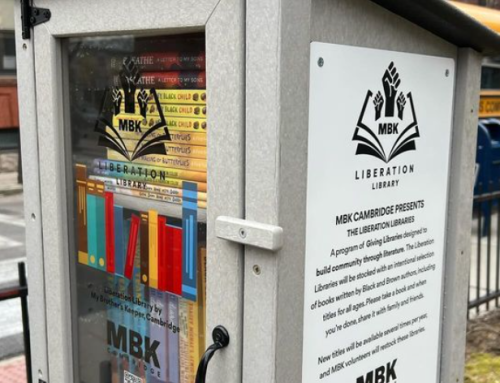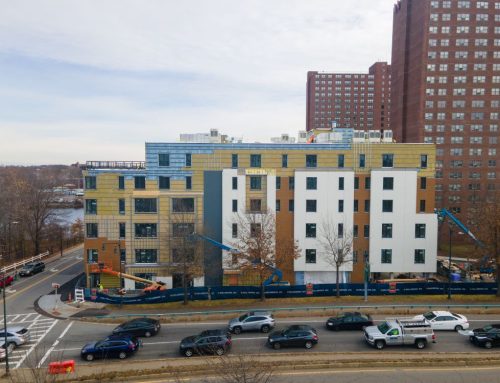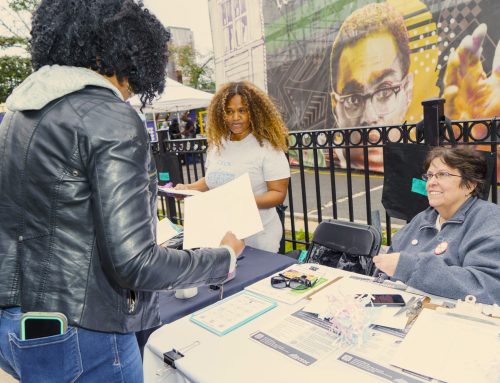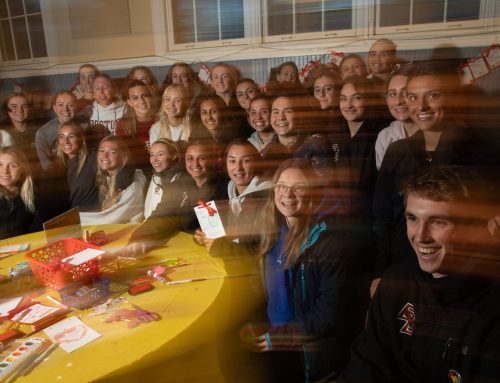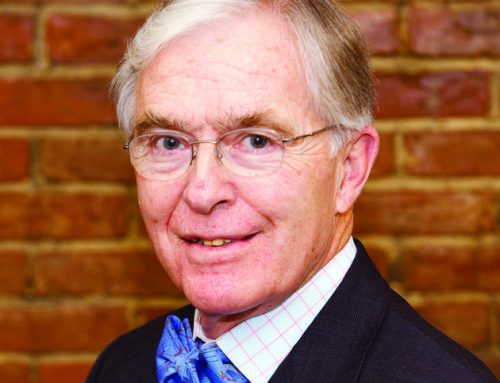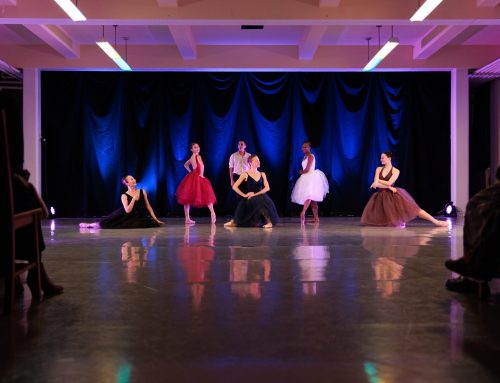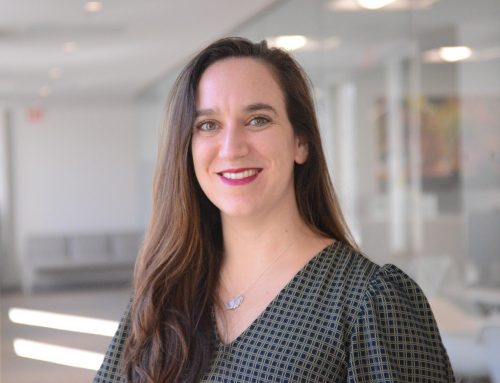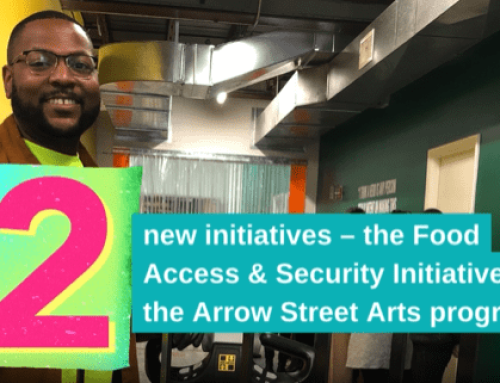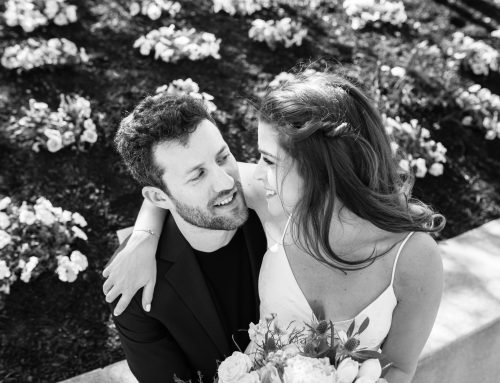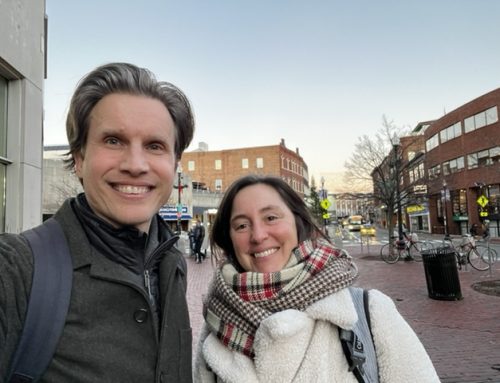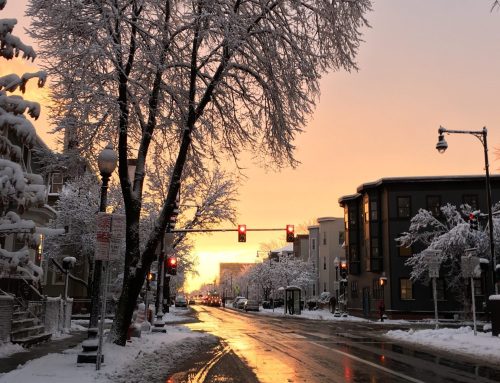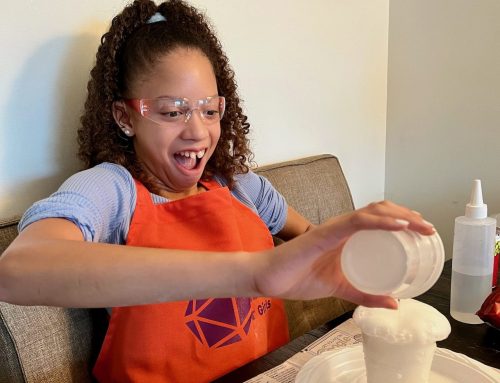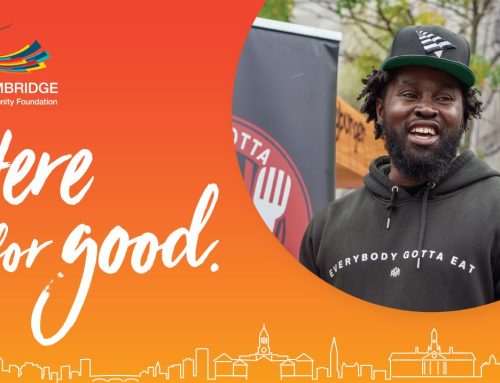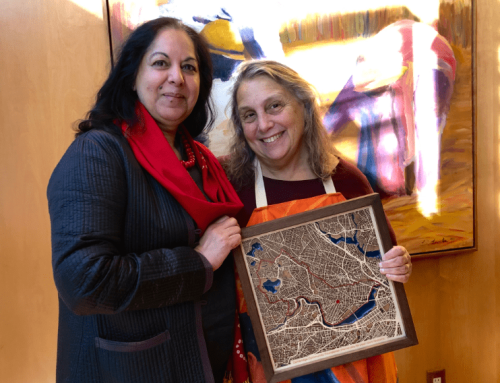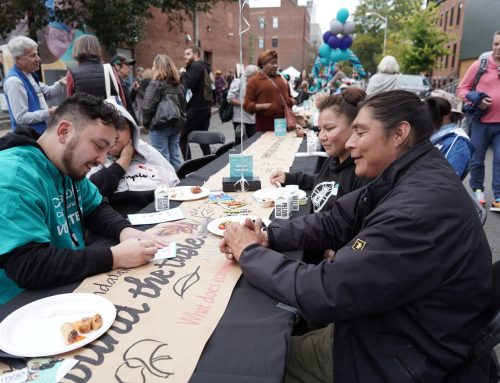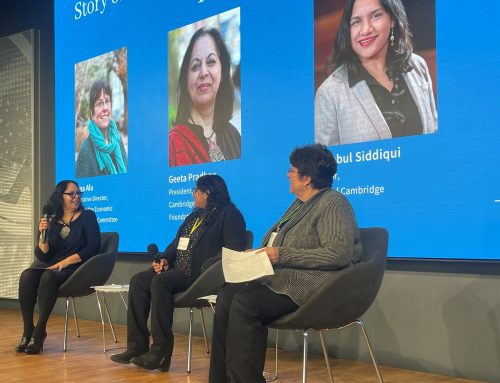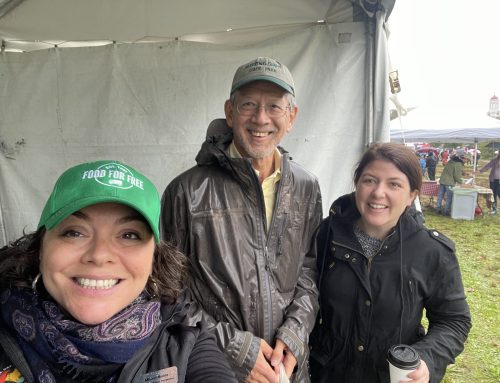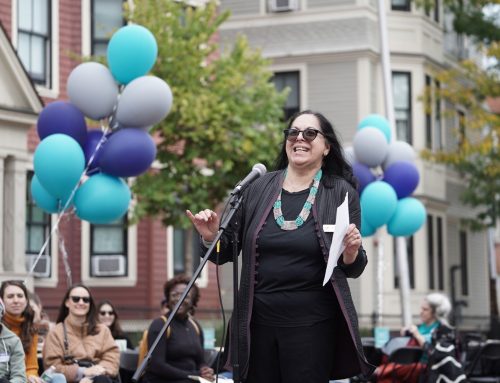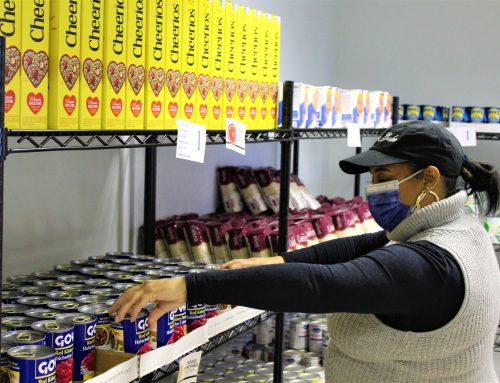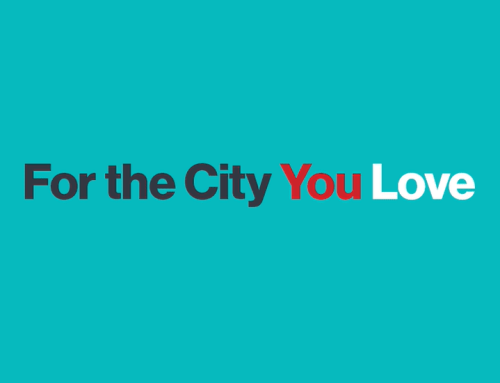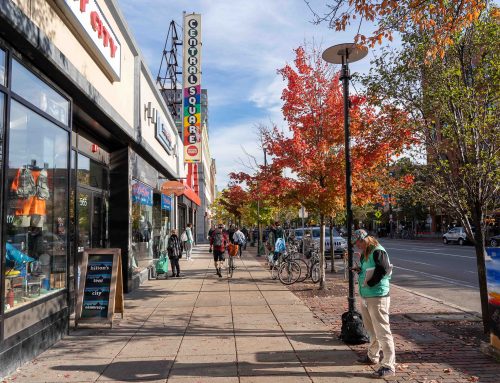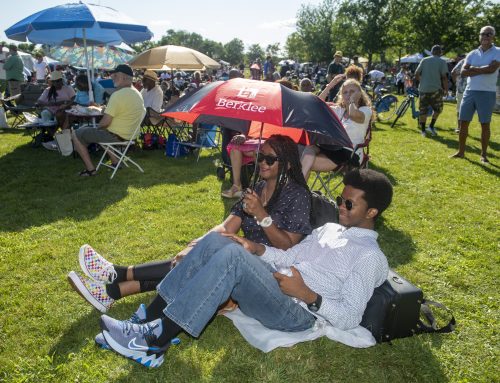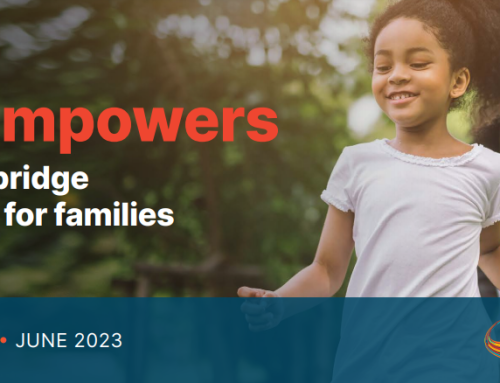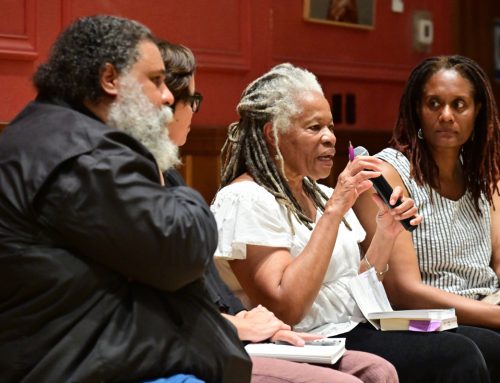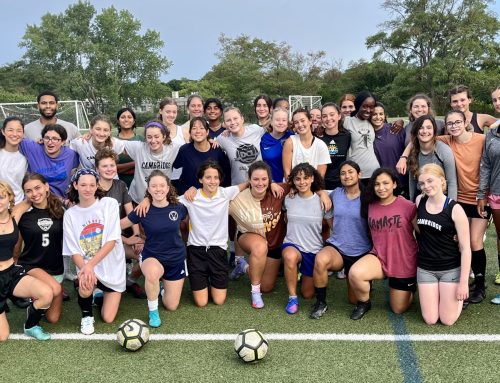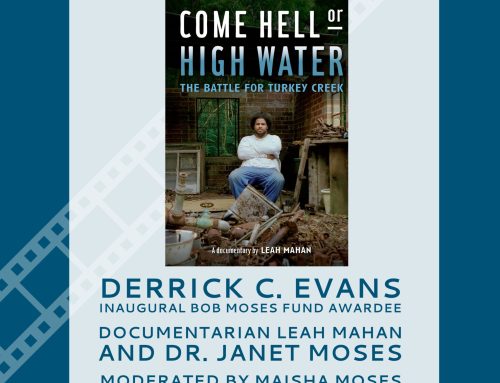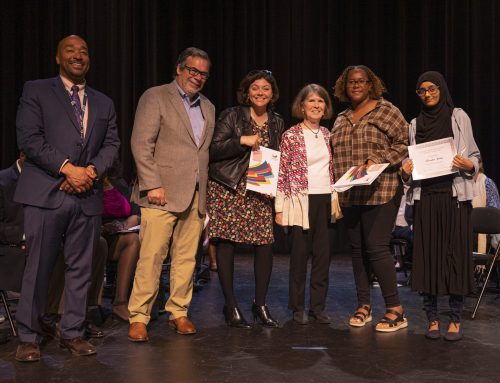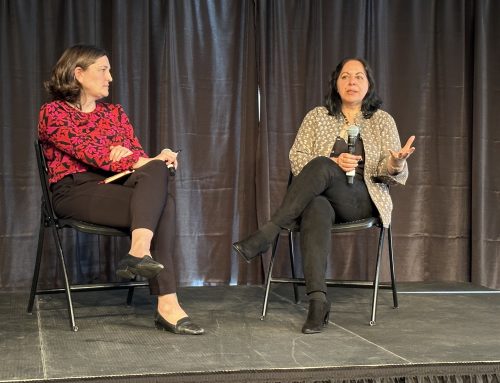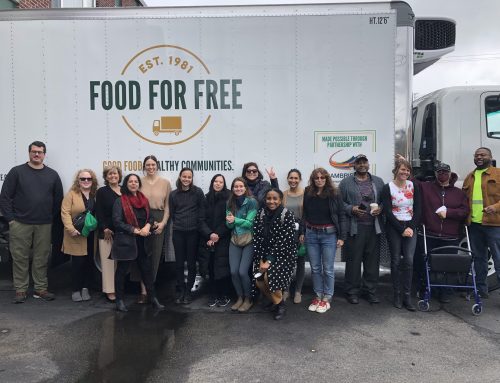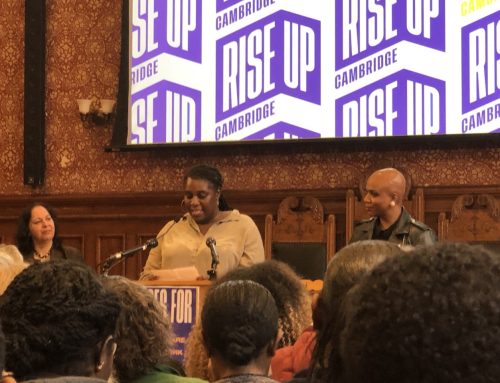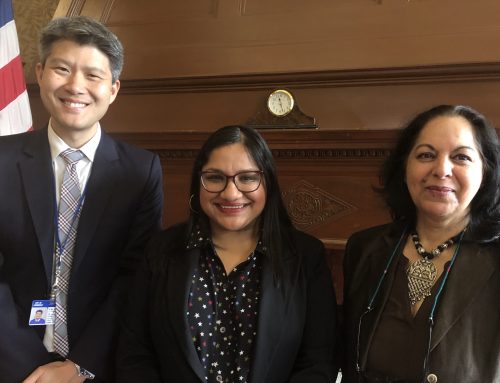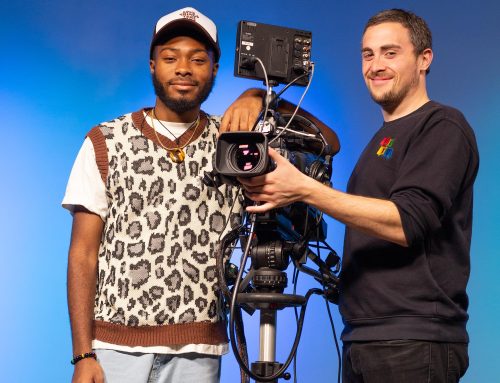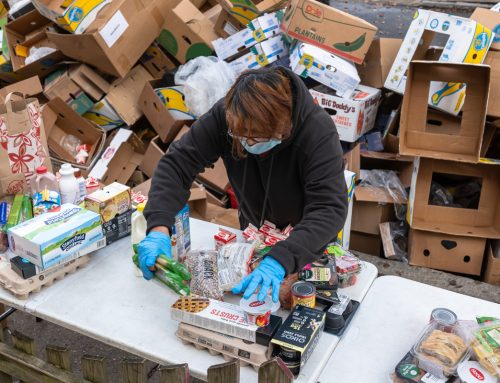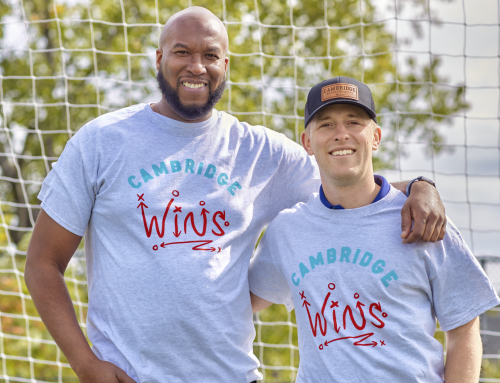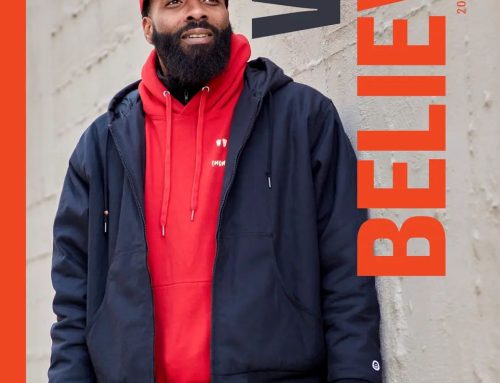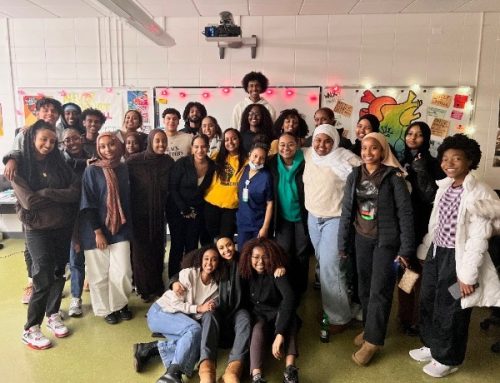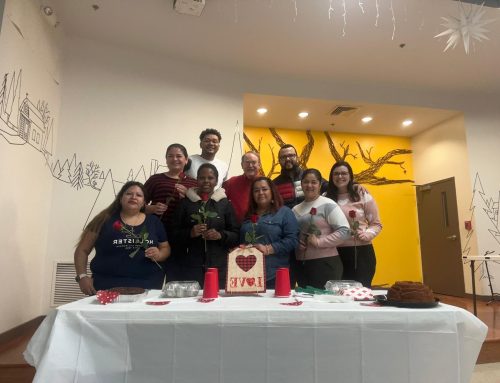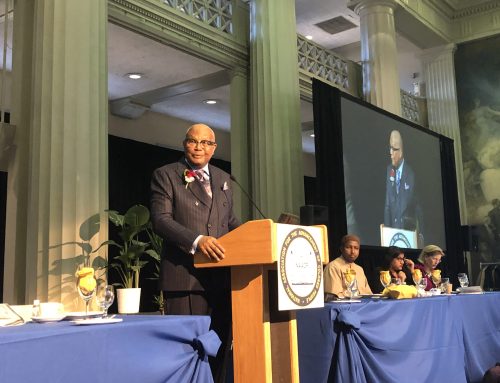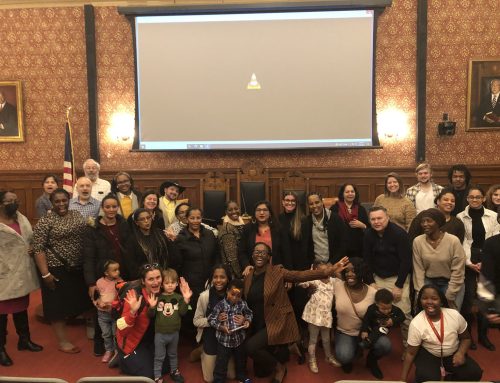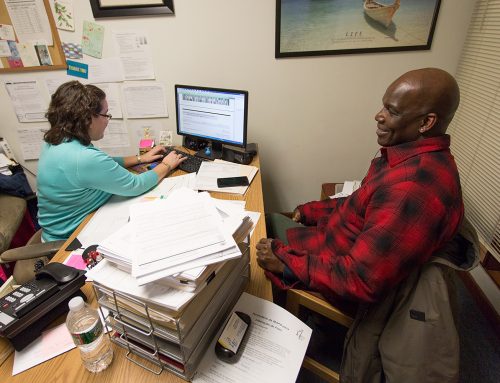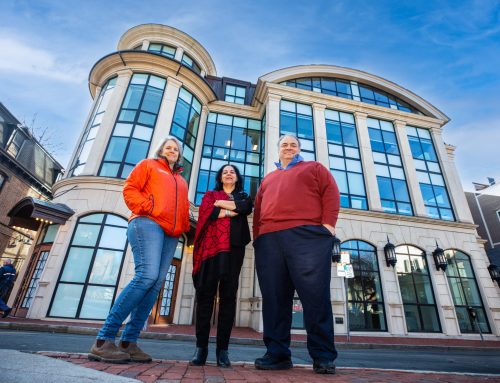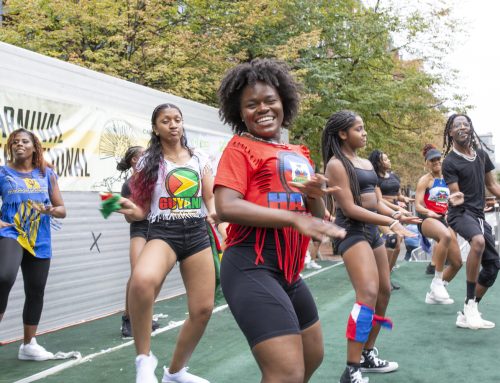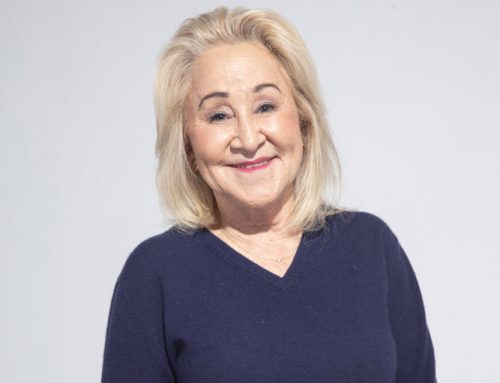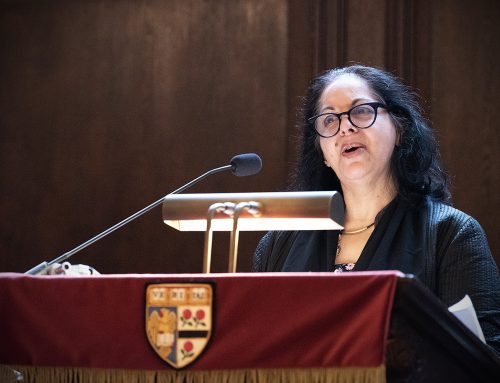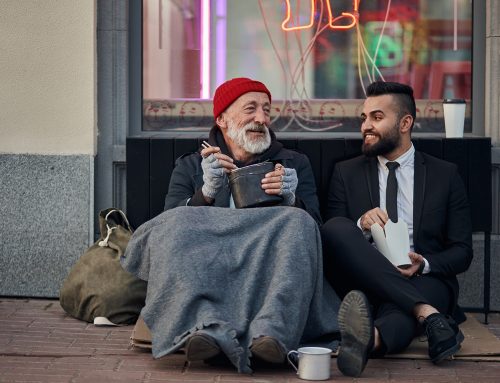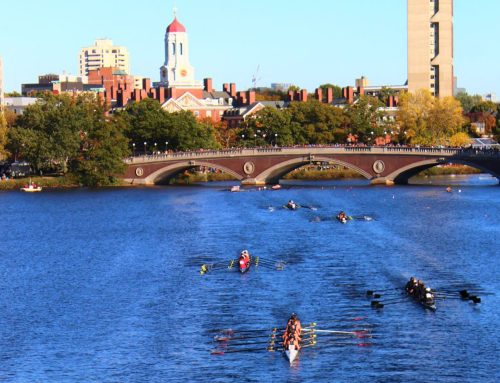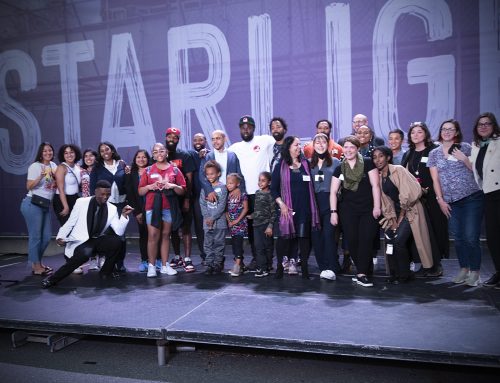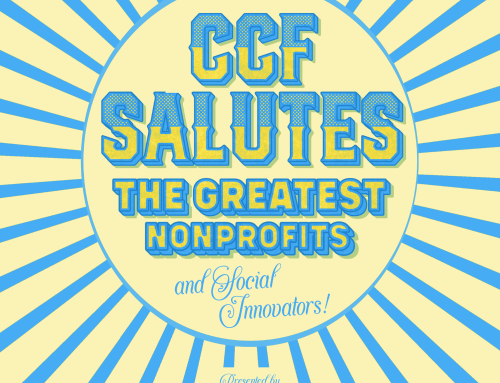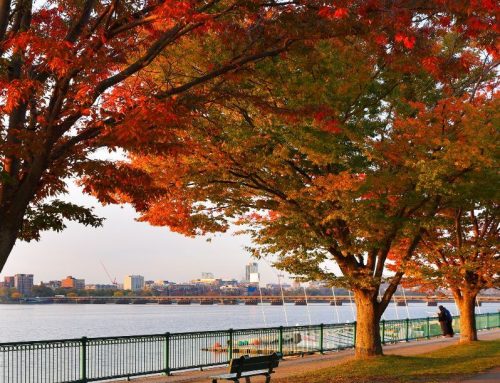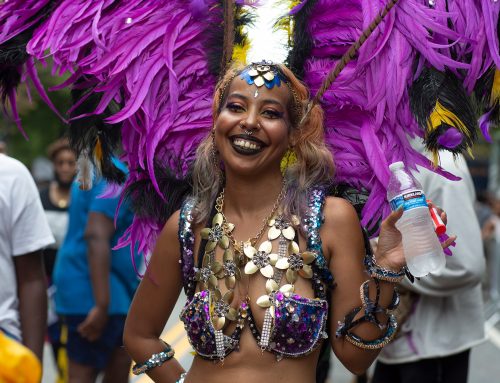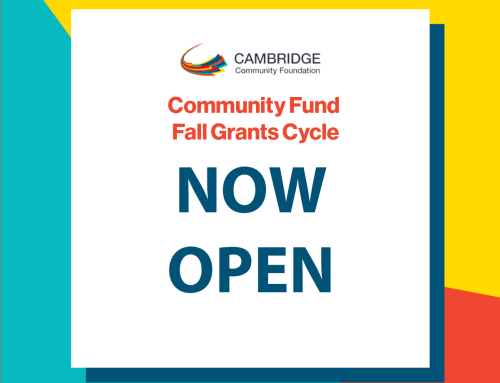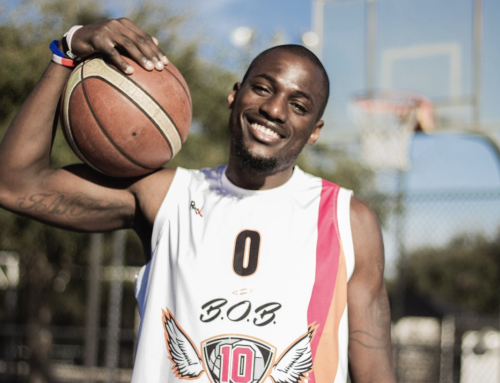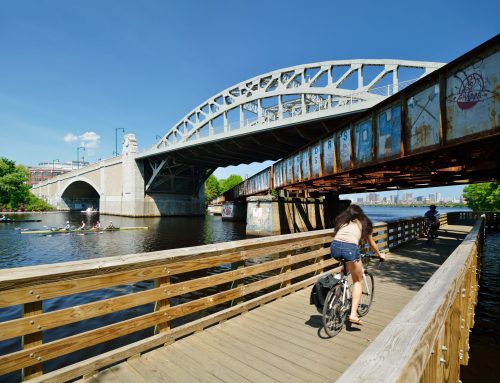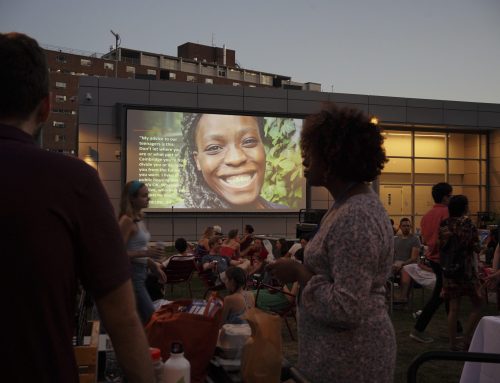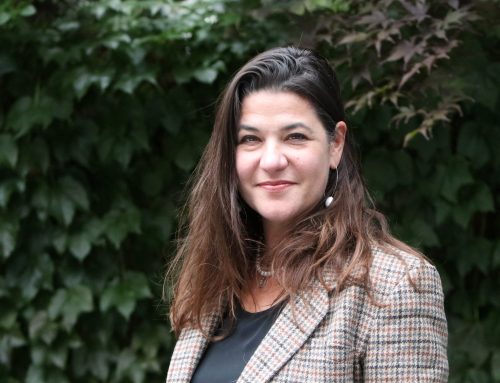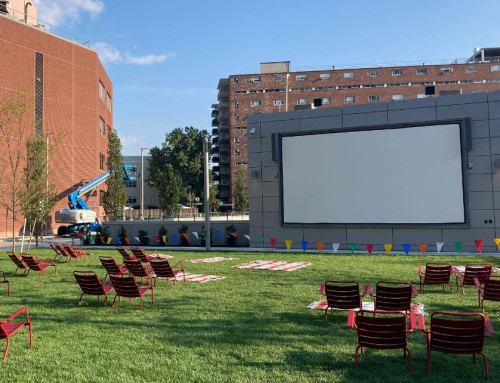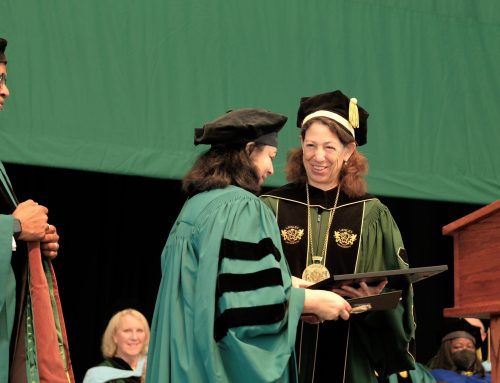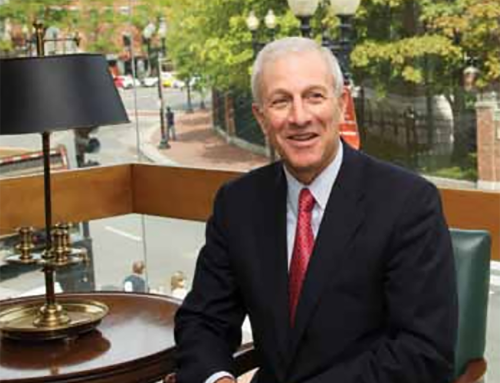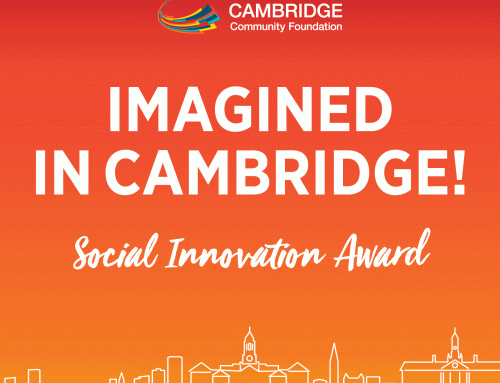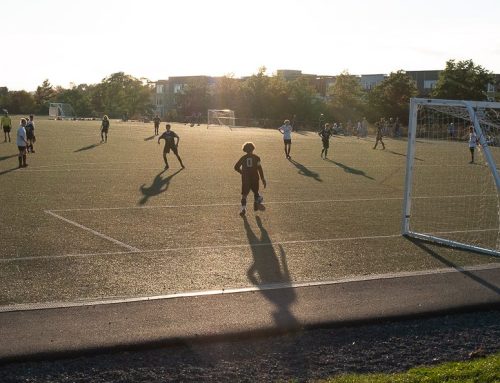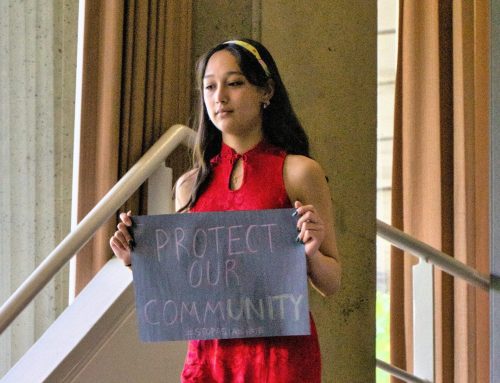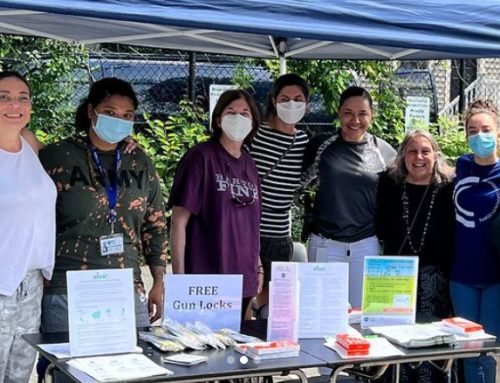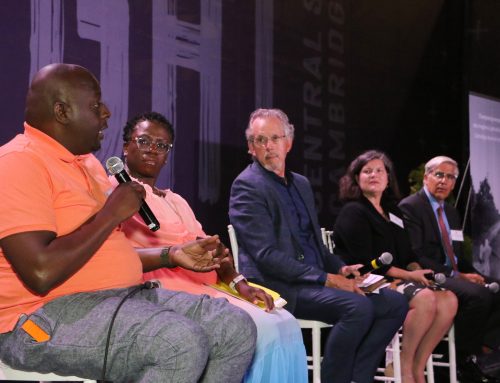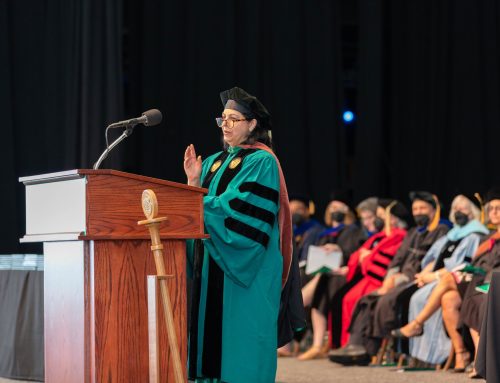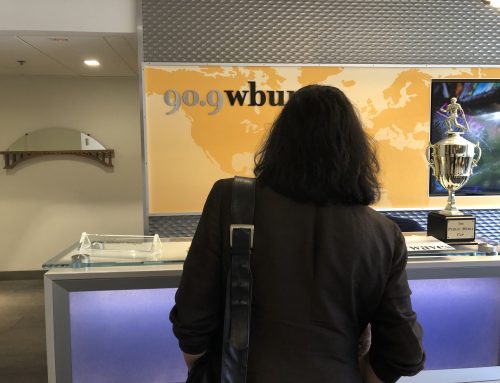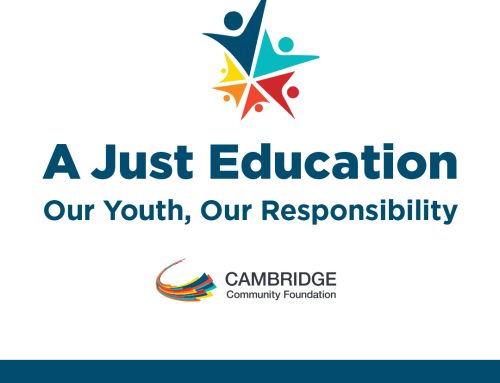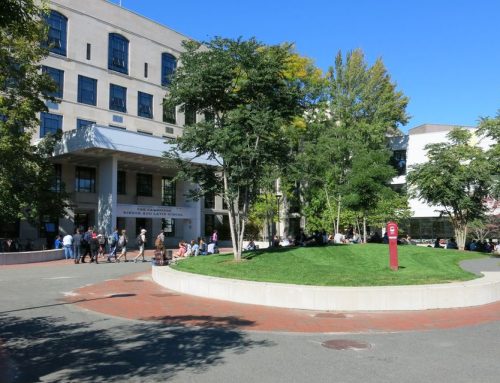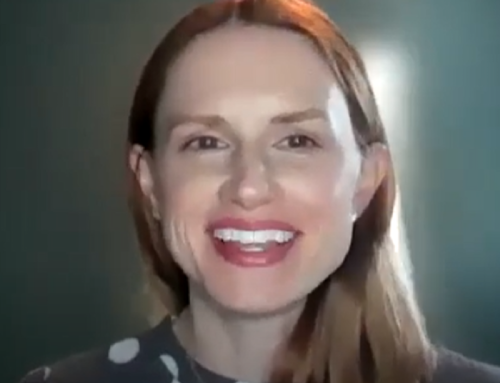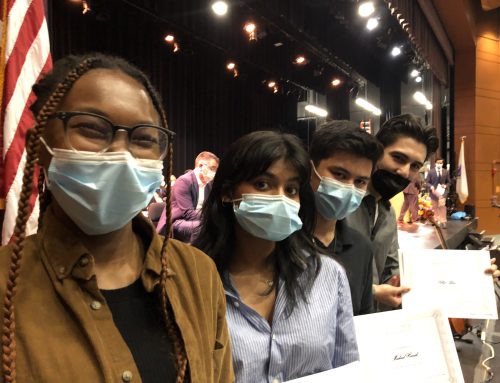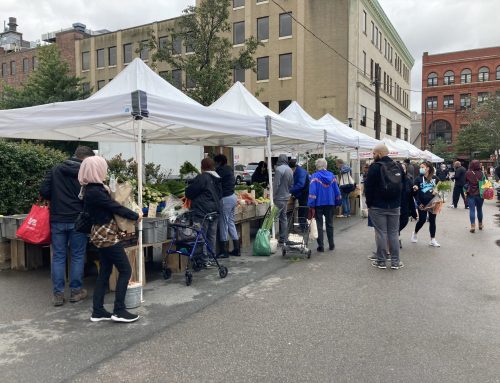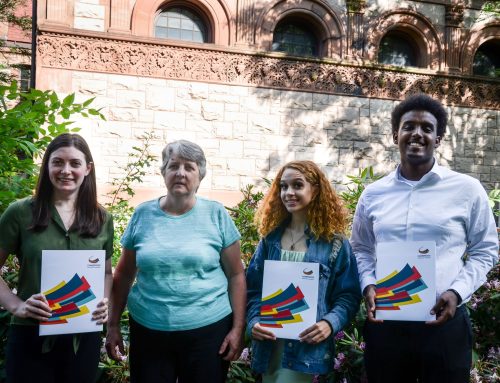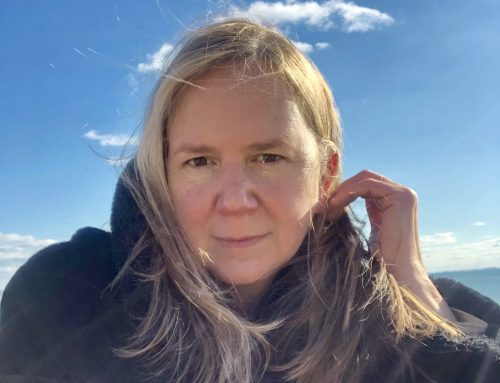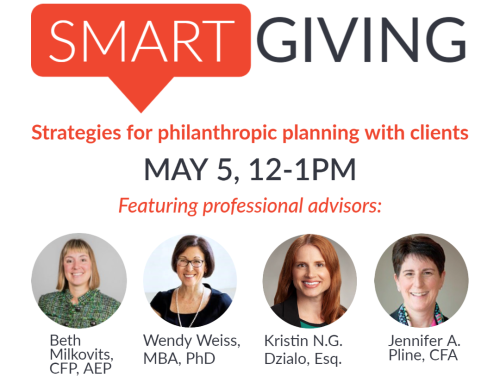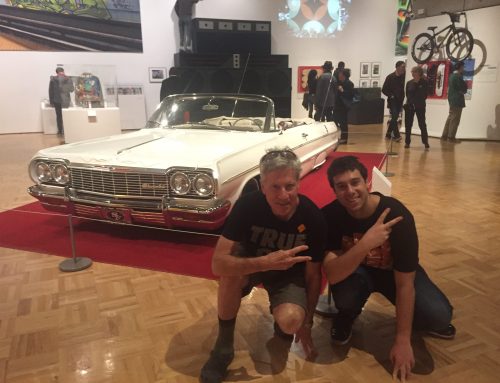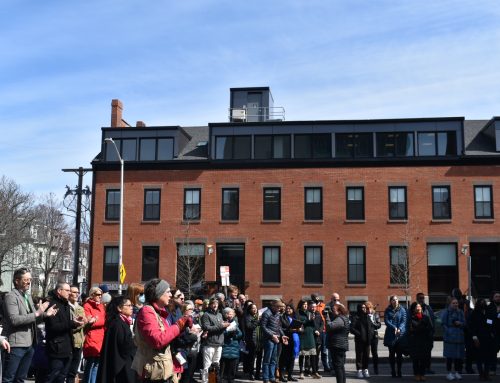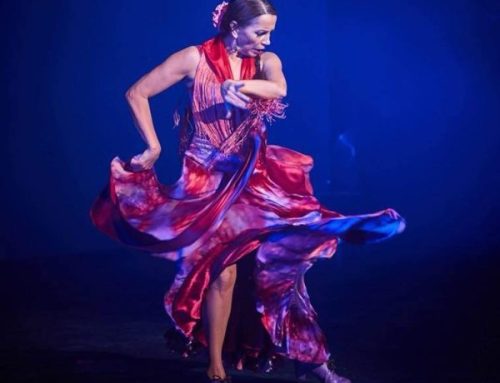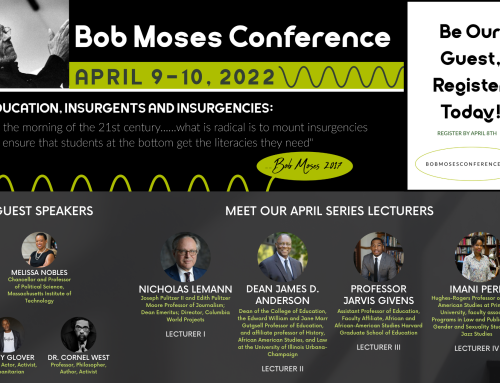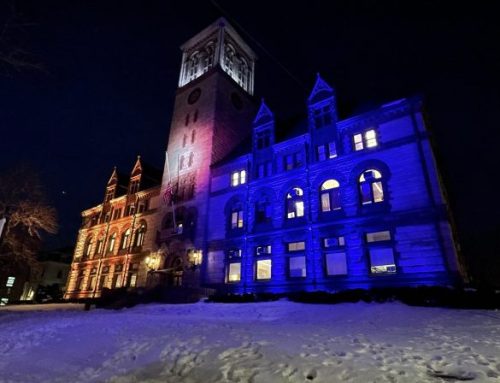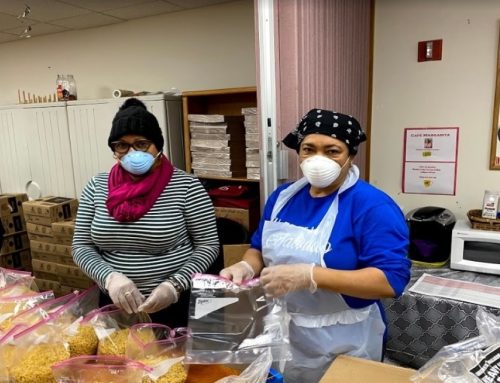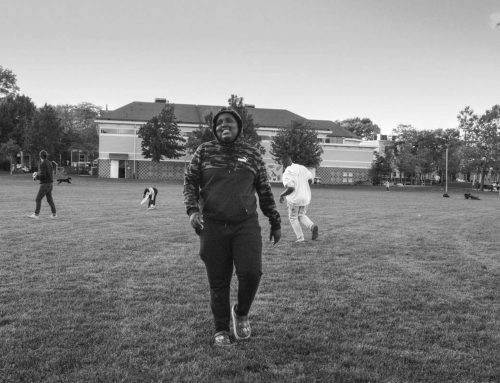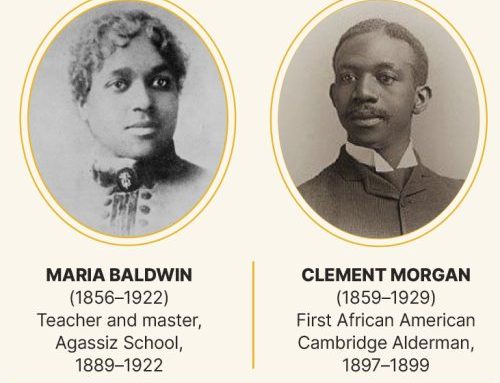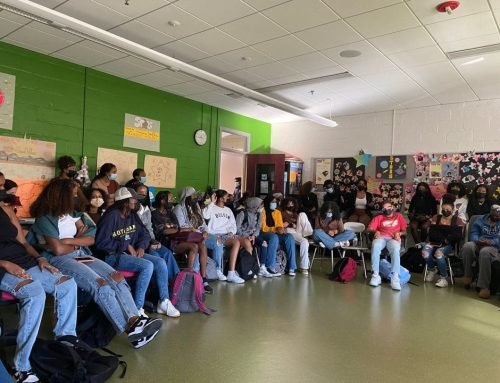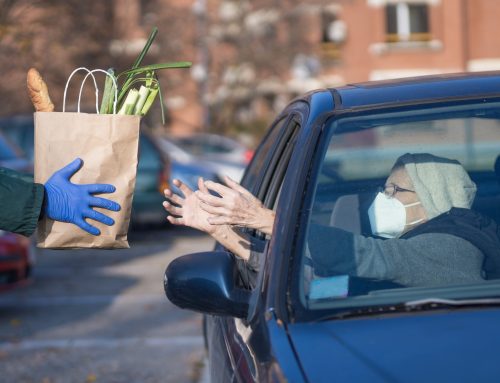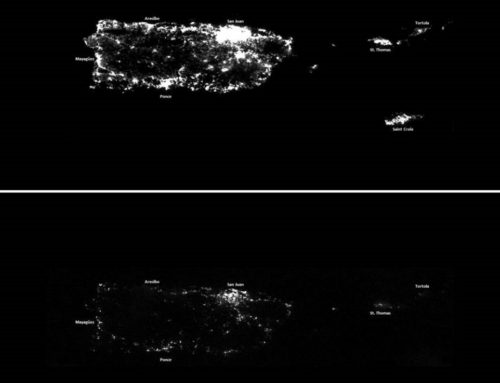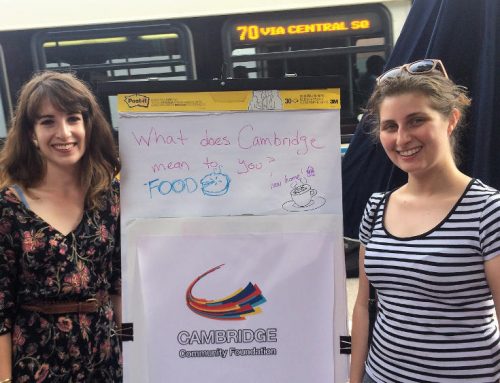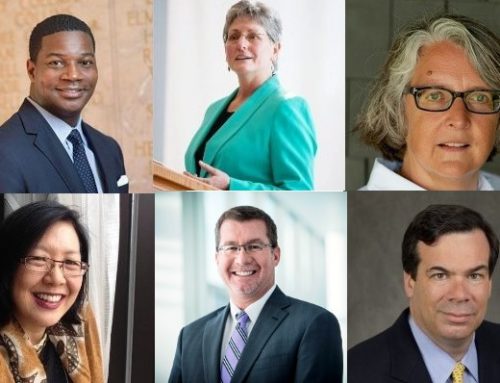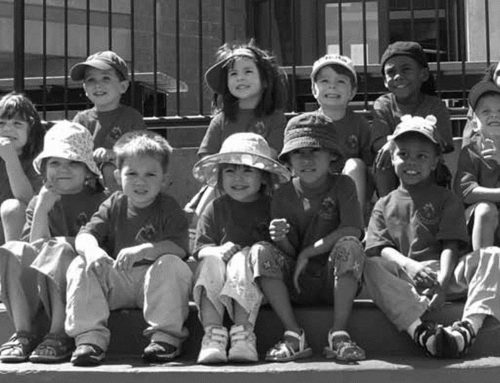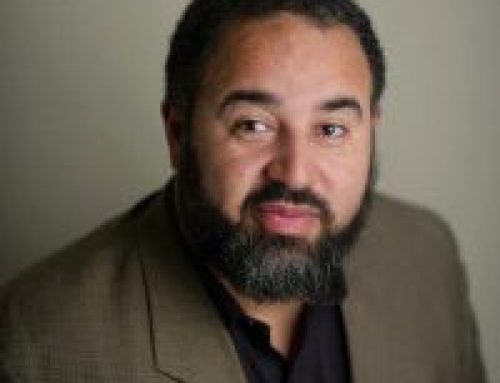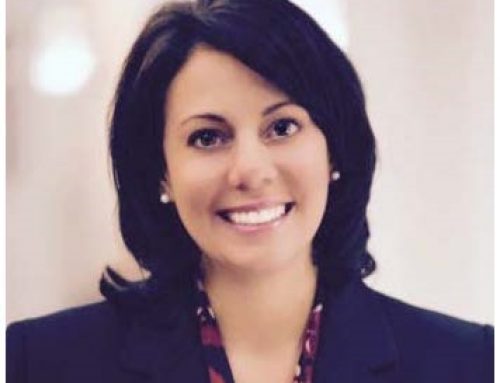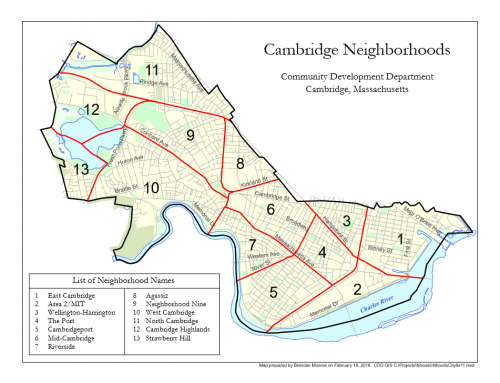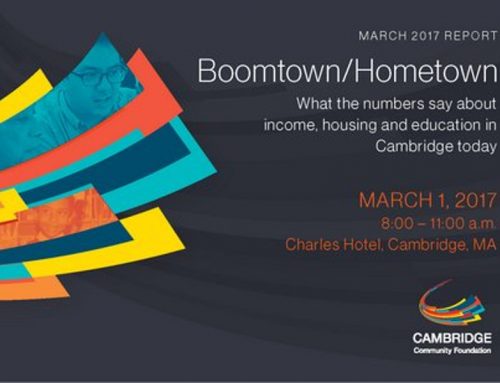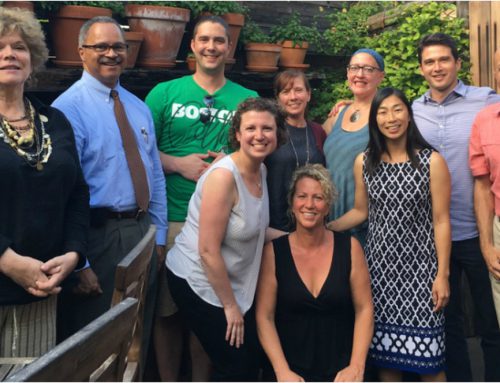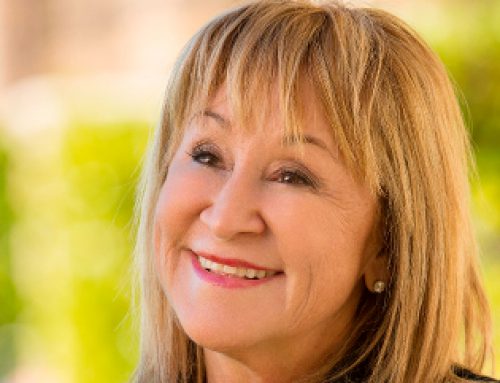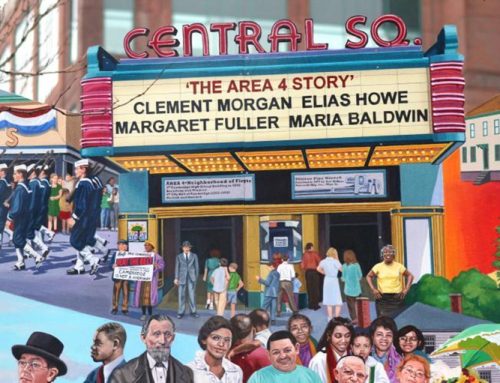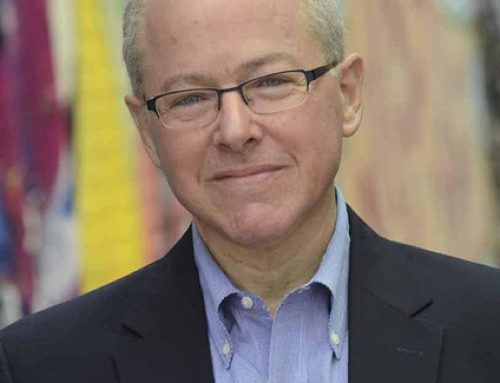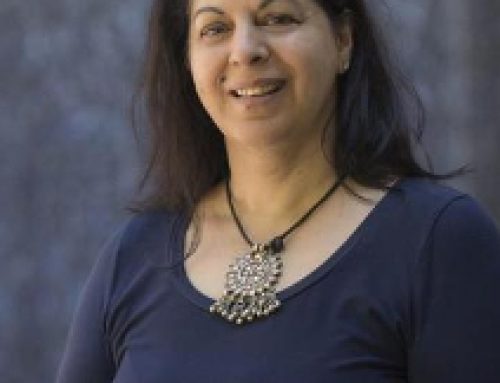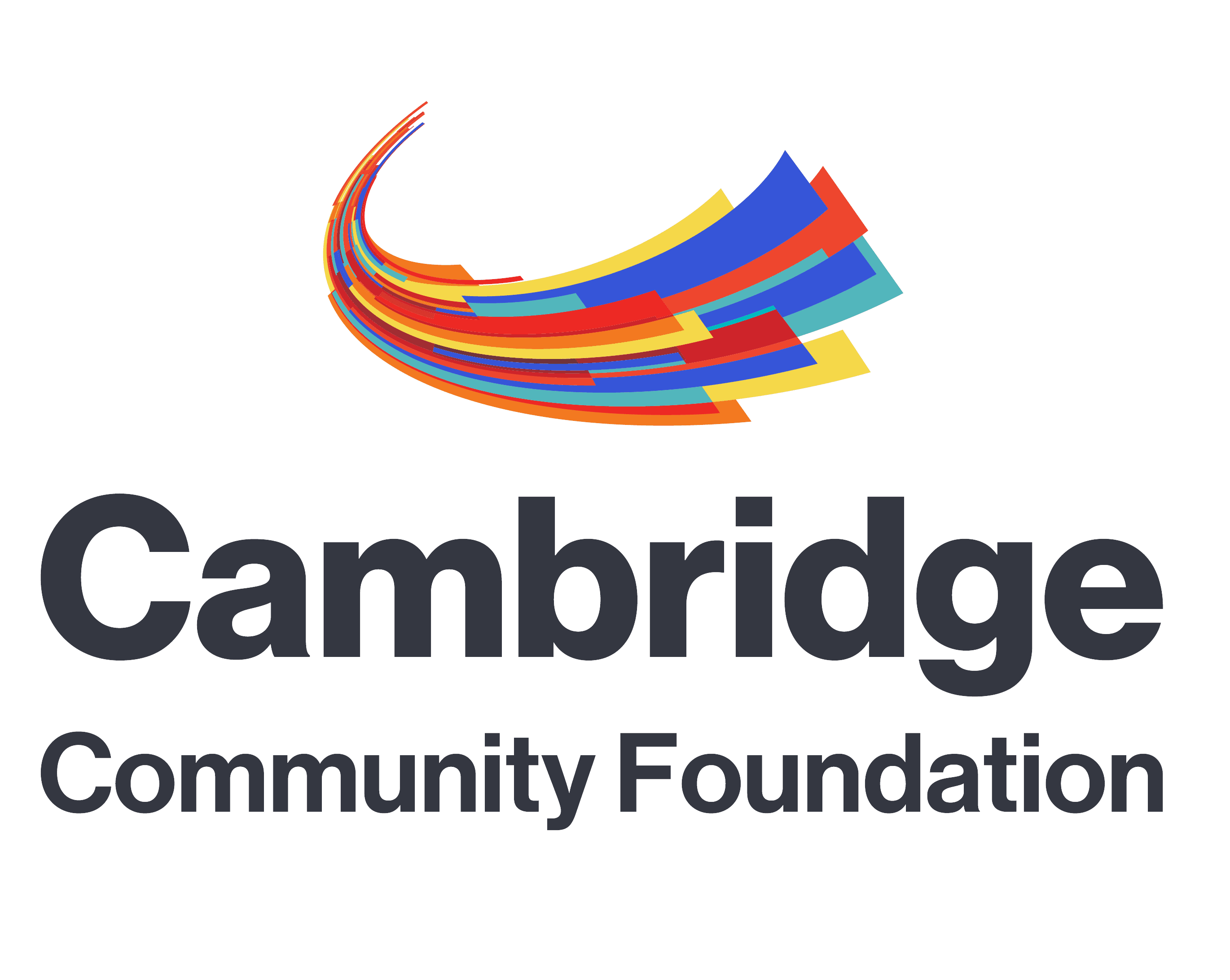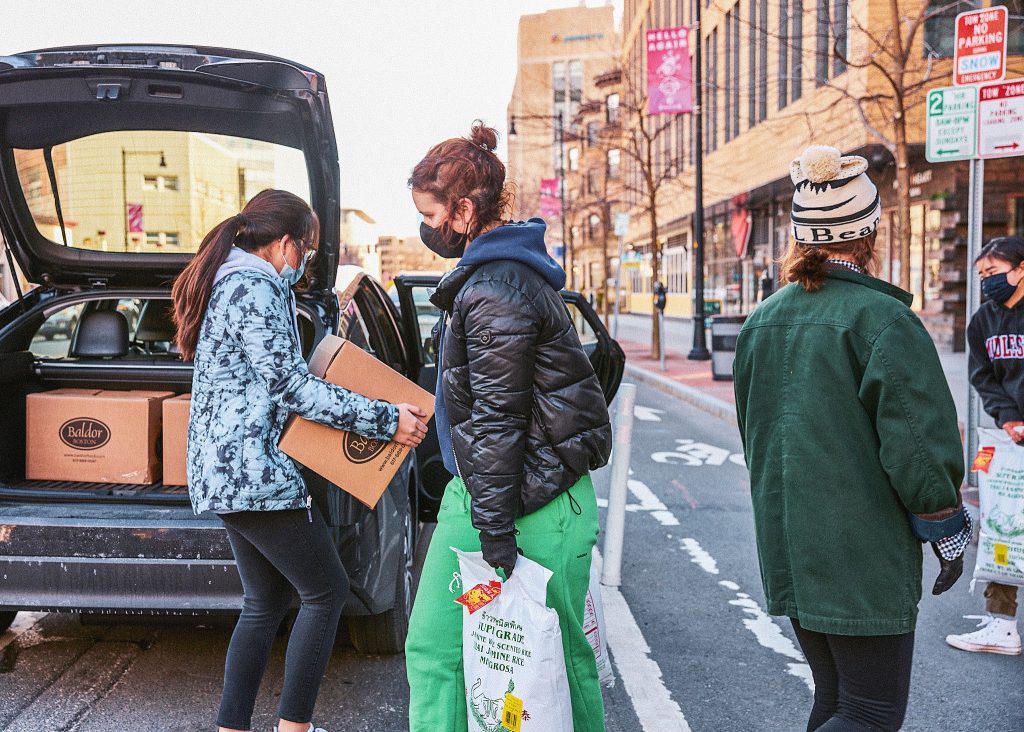
Photo by Nick Surette for Central Square BID of Project Restore Us, a new CCF partner.
April 1, 2021 | Cambridge, MA
In response to sustained demands on nonprofits in Cambridge, the Cambridge Community Foundation (CCF) increased funding allocated for its spring grantmaking by 50%, awarding a total of $533,000 in grants to 73 local nonprofits involved in youth programs and education, housing, hunger, homelessness, elder services, financial empowerment, the arts, COVID-19 relief, and racial justice.
To meet heightened needs in the community, the Foundation went beyond the regular Community Fund allocation for the spring grantmaking cycle totaling $353,000 to tap additional resources. This included $95,000 from the Cambridge COVID-19 Emergency Fund, $50,000 from CCF funds earmarked for racial equity, and $35,000 from other Foundation Funds to help nonprofits maintain key services and foster new initiatives and collaborations in response to the pandemic. Extending the flexibility offered to nonprofits in the wake of COVID-19, grant recipients can use the funds at their discretion, including for general operating expenses. Jump to a list of all CCF spring cycle grant recipients.
“Over the past year, Cambridge’s nonprofit sector has shown remarkable resilience and creativity in meeting the needs of constituents: many had to increase services tenfold, while others were forced to cut back; some agencies reimagined their services in creative ways, and new programs emerged to fill in gaps exposed by elevated needs in our community,” said Cambridge Community Foundation president Geeta Pradhan. “The data in our upcoming report, Equity and Innovation Cities: The Case of Cambridge, paints a stark picture of challenges faced by our most vulnerable populations. The nonprofit sector’s innovative new partnerships and creative responses will be much needed to help bridge the gaps and meet emerging needs in a post-pandemic world.”
As part of this spring’s dynamic, responsive grantmaking process, applicants were asked to self–categorize a target focus for funding in one of three ways: “ongoing work,” “innovative ideas and collaborations emerging from responses to the pandemic” and “internal racial equity work.”
Innovations from longstanding and emerging nonprofits
Many of the spring grants were awarded to longtime nonprofit partners – such as Adbar Ethiopian Women’s Alliance, East End House, Central Square Theater. Seventeen percent of the funds were awarded to new nonprofit partners, those never funded before or not funded within the last three years, including three organizations fighting food insecurity – Project Restore Us, Lovin’ Spoonfuls, and Rescuing Leftover Cuisine – as well as equity-driven, grassroots nonprofits like Cambridge Families of Color Coalition, which trains caregiver advocates for equity in our public schools; and VLA Dance, a Black-owned contemporary dance company using performance, education, and community advocacy to empower and amplify historically under-respected voices.
Project Restore Us (PRU) emerged locally in response to COVID-19. Formalized last June, PRU began much earlier in the pandemic when Dr. Marena Lin needed a bag of flour and went to her friend Tracy Chang, chef/owner of PAGU in Central Square. The two women realized that the restaurant supply chain could be leveraged to support neighbors in need. To date, PRU has delivered 202 tons of food to 4,210 households, and has new initiatives underway, thanks to a volunteer-powered coalition of 200 drivers, 30 coordinators, staff of five local restaurants, and dozens of community partners.
“It really is a community effort: neighborhood restaurants, community organizations that know and address neighbors’ needs, drivers from all walks of life, our behind-the-scenes organizing team, and funders and donors like the Cambridge Community Foundation,” said Quantum Wei, development director. “PRU started to solve very real problems in our neighborhoods, and it’s worked so well because it is a win-win solution for restaurants and food recipients. Looking ahead, we plan to move beyond emergency food aid and build a solution that reimagines our food system to be more equitable.”
Somerville-Cambridge Elder Services (SCES), a longtime nonprofit partner, has responded creatively to many challenges for seniors this year. While non-essential in-person services were limited, their hotline became an essential resource for up-to-date information in a rapidly changing world, including how to navigate vaccinations. At the outset of the pandemic, they established a new partnership with FriendshipWorks to match volunteers to SCES senior clients for weekly “visits,” via phone.
“Social isolation has always been an issue for our population. It’s now a pressing issue that’s that transcends everything—ability, language, age. Technology is also clearly becoming a necessity,” said Colleen Morrissey, SCES director of volunteers & special projects. “A lot of community members want to give back and have more time to do it. We’re hopeful that the experience of the pandemic will continue to increase empathy for older people whose regular state is effectively homebound.”
At the core of many nonprofits’ work, racial justice
One nonprofit in this cycle – Cambridge Arts Council – specifically targeted their grant for internal racial equity work and five more nonprofits with racial justice at their core were granted dollars from funds set aside by the Foundation to address racial equity.
One of these partners is the Young People’s Project (YPP), an afterschool program that empowers high school students of color to be Math Literacy Workers for younger students in their communities. YPP transitioned smoothly to a fully virtual environment last year by intentionally prioritizing connectivity for all students and focusing on recreating fun and collaboration in an online setting. Racial equity is deeply embedded in their organizational mission.
“We understand our work to be fundamentally about shaking up, dismantling, putting cracks in the way that our country’s caste system expresses itself in the education system such that many Black students and students of color get relegated to the bottom tier,” said Maisha Moses, YPP executive director. “Our strategy comes from lessons of the civil rights movement: the idea that people most affected by the problem have to be part of working on the solution. In education, that’s the students. Math literacy work creates a space to organize young people to both address an immediate need – learning math, a gateway to 21st-century knowledge, skills, careers – and bring awareness and talk about how to grapple with the education system in our community and our country.”
CCF grantmaking and civic leadership at a glance
Grant decisions are informed by a diverse committee of grant reviewers comprised of over 20 community residents and leaders from nonprofits, arts organizations, law enforcement, universities and schools, and other sectors of our city. The committee is led by program committee co-chairs Lori Lander and Rev. Lorraine Thornhill.
Lori Lander said: “The work being done by nonprofits is extraordinary. In many cases, they see neighbors facing intractable problems, some brought on by the COVID-19 pandemic and systemic racism. Nonprofits are among the first to present effective, hyperlocal solutions. The Foundation proudly stands with our nonprofit partners to make Cambridge a better place to live for all.”
As a community grantmaker, the Foundation invests in approximately 150 local nonprofits each year, as well as new and multi-year initiatives that align with the three pillars of the Foundation’s mission: shared prosperity, social equity, and cultural richness. It also responds to pressing community needs. Since March 2020, in partnership with hundreds of generous donors, the Foundation awarded a total $4.2 million in grants through its steadfast biannual grantmaking, the Cambridge COVID-19 Emergency Fund, the Cambridge Artist Relief Fund, and the Cultural Capital Fund, launched in partnership with the City of Cambridge.
On April 7, the Foundation will launch a new research report, called Equity and Innovation Cities: The Case of Cambridge, which reveals how the city has emerged as a leader among innovation cities, and how its population across all income levels has fared. The data makes the case that not everyone in the city is sharing equally in the city’s prosperity. The Foundation sees the report as a platform for common knowledge, and to bring the city’s sectors together to forge solutions. Learn more here.
Spring 2021 Grants
Innovative ideas and collaborations responding to the pandemic
Adbar Ethiopian Women’s Alliance: $5,000 (A portion of this grant comes from funds earmarked for racial equity)
Both material and emotional support to vulnerable, low-income immigrants, including those who are undocumented and seeking asylum, who are highly impacted by the COVID-19 pandemic.
Boston Symphony Orchestra: $2,500
A small series of live, outdoor Rolling Recitals in June 2021 to be held at sites around Cambridge and Boston.
Cambridge Children’s Chorus: $3,000
Musical training and wide-ranging performance opportunities on a virtual platform to young people ages 4-12, celebrating diversity and fostering goodwill.
Cambridge Community Television: $15,000
A new “Into the Future” series, telling stories of recovery and resilience.
Cambridge Economic Opportunity Committee: $25,000 (This grant comes from the Cambridge COVID-19 Emergency Fund)
The designated anti-poverty community action agency, offering free services including a food pantry and financial education, is now launching a program to give small cash grants to income-eligible people in Cambridge.
The Cambridge Families of Color Coalition: $7,500 (This grant comes from funds earmarked for racial equity)
A collective working to train caregivers of color to advocate with and on behalf of other caregivers of color experiencing disenfranchisement due to the hoarding of resources, lack of family engagement, and exclusion from decision-making within Cambridge Public Schools.
Cambridge Jazz Foundation: $2,000
An extensive online jazz museum from an organization known for providing excellent outdoor concerts, scholarships, and a mobile jazz museum for audiences around the world and online.
Center for Artistry and Scholarship: $2,500
Engagement with Maria L. Baldwin School students, families, and educators in an equity design process to reimagine the rituals and traditions that build and deepen school community during recovery from the pandemic.
Metro Housing | Boston: $10,000 (This grant comes from the Cambridge COVID-19 Emergency Fund)
Support along the continuum from homelessness to housing stability; providing voucher administration, housing search assistance, and emergency transition funding, and housing support services. Launching a new colocation site at Mt. Auburn Hospital in 2021.
MIDDAY Movement Series: $2,500
A BIPOC-led, grassroots initiative cultivating a new generation of dance leaders. MIDDAY teachers are given time to hone their teaching skills, build a following, and receive mentoring, free of cost.
Project Restore Us: $10,000 (This grant comes from Cambridge COVID-19 Emergency Fund)
A Cambridge-based collaboration that employs restaurant workers to prepare culturally appropriate grocery boxes for food-insecure families.
Somerville-Cambridge Elder Services: $10,000 (This grant comes from Cambridge COVID-19 Emergency Fund)
Services to low-income older adults and some younger people with disabilities, helping them to maintain independence and quality of life. A primary goal is to reduce loneliness through volunteer interactions.
Steps in Time: $1,500
An online, class series for elderly residents on the principles and origins of different ballroom dance styles, such as Waltz, Tango, Foxtrot, Cha-cha–cha, Rumba, East Coast Swing.
VLA Dance: $5,000
A Black-owned contemporary dance company using performance, education, and community advocacy, to empower and amplify historically under-respected voices.
Internal Racial Equity Work
Cambridge Arts Council: $10,000 (This grant comes from funds earmarked for racial equity)
Support for the next funding round of Art for Racial Justice Grants to high-quality, community-based arts programming.
Ongoing Work
Adolescent Consultation Services: $7,500
Specialized, direct mental health services to children and families involved with Cambridge Juvenile Court.
Asian American Resource Workshop: $5,000
Grassroots power building for pan-Asian communities through political education, creative expression, and issue-based and neighborhood organizing. South Asian youth and young adult programming in Cambridge.
Becoming a Man (BAM): $30,000 (A portion of this grant comes from the Education Research Gap Fund)
A school-based, trauma-informed counseling and mentoring program that improves the social-emotional skills & behavioral competencies of young men, predominantly young men of color, in grades 7-12.
Bridge Over Troubled Waters: $7,000
Prevention and intervention for homeless, runaway, and at-risk youth.
Cambridge Center for Adult Education: $5,000
CCAE is working to enhance its commitment to diversity, equity, inclusion; keep programs accessible by expanding a scholarship program by 25%; renew community partnerships that were delayed due to pandemic; and fully activate a new Tandem Learning Program for ESOL & world languages students.
Cambridge Health Alliance Foundation: $2,500
The Sibling Support Program is designed to aid the mental health of siblings of children who are hospitalized in a psychiatric facility.
Cambridge Neighborhood Apartment Housing Services: $4,000
Ongoing COVID-19 response through its resident services program.
Cambridge Volunteer Clearinghouse: $18,500
CVC advances community-centered, equity-based volunteerism for Cambridge by connecting volunteers and local agencies and providing related support.
Cambridge Women’s Center: $4,000
Free emotional support, computer access, refuge, food, resource referrals, support groups, and community connection to women seeking support in-person or over the phone.
Cambridge YMCA: $4,500
Art supplies, books, games, sport equipment, and PPE for its afterschool program.
Cambridge Youth Enrichment Program (PBHA): $3,500
A six-week, hybrid (online/in-person) summer 2021 enrichment program, supplying campers with home learning/wellness kits and the technology necessary to access camp.
Central Square Theater: $10,000
In a COVID-19 recovery transition phase, CST will sustain hybrid virtual programming; resume live in-person programming; and conduct organization-wide antiracism work.
College Success Initiative: $15,000 (A portion of this grant comes from a donor advised fund)
Campus-Based Coaching is designed to advance the six-year college completion rate of students from groups underrepresented in higher education so their graduation rate is the same as their higher–income peers.
Community Servings: $5,000
A home-delivered, medically-tailored meal program addressing heightened need in Cambridge as a result of COVID-19.
Compass Working Capital: $7,000
Expanded savings and financial coaching programs that support Cambridge Housing Authority residents and families to build assets, achieve their financial goals, and become financially secure.
Cradles to Crayons: $3,000
The Mobile Clothing Pantry provides everyday essentials to Cambridge’s vulnerable children.
CW Taekwondo at Boston: $2,500
Financial support to low- and mid-income families for movement arts education through the martial art of taekwondo.
The Dance Complex: $17,500
TDC seeks more efficacy and impact for the community, as a nimble and reimagined organization that continues to learn from the COVID-era, from dialogue with its communities, and from organization-wide antiracism work.
Dancing Queerly: $2,000
Annual festival of dance workshops, performances, and public conversations by and for the LGBTQIA+ community, allies, and friends.
Design Museum Foundation: $20,000 (final installment of a three-year funding initiative)
Neighborhood Design Project builds capacity for local economic development by empowering young people to use creativity as a force for change and community building.
East End House: $30,000
A longstanding community center using a holistic approach to promote the wellbeing, academic achievement, and successful transition to adulthood of children and youth from under-resourced families in Cambridge and surrounding communities.
Emerge: $4,000
Enabling men and women unemployed due to COVID-19 to participate in a treatment program for those who abuse intimate partners and/or free parenting education groups for fathers with histories of domestic violence.
Found in Translation: $4,000
Online delivery of Language Access Fellowship Medical Interpreter Certificate Training and Job Placement Programs for low-income, bilingual women.
The Front Porch Arts Collective: $10,000
A Black theatre company committed to advancing racial equity. Its Racial Unity Movement Project is a collaborative, devised performance piece using dance, spoken word, and music to inspire our community to take real action towards racial unity and equality.
Furnishing Hope of Massachusetts: $2,500
Furniture and moving services for Cambridge families to create safe, comfortable homes as they transition from shelters into stable housing.
The Gallery 263: $2,000
An interdisciplinary art space striving to provide virtual tour capability and overhaul its website to allow the public to better engage with programming as social distancing continues.
Girls’ LEAP: $2,500
Empowerment, self-defense programs to girls, trans girls and non-binary youth, delivered in partnership with community organizations.
Global Arts Live: $2,500
An online and outdoor performance season in 2021 working with local, national, and international performers who are chosen for their artistic talent and their cultural relevance to Cambridge’s under-represented communities of color.
Green Cambridge: $2,500
Engagement in collective environmental stewardship, advocacy for spatial justice, promotion of cross-silo collaboration between social communities, and informal place-based, STEAM, educational discovery opportunities.
Harvard Square Churches Meal Program: $4,000
A weekly evening meal for the unhoused and underserved in Cambridge.
Heading Home: $5,000
Emergency shelter, housing, and support services to Cambridge residents experiencing homelessness.
The Henry Buckner School: $25,000 (This is a Community Foundation COVID-19 Relief Grant, from the Baker-Polito administration through the Massachusetts Executive Office of Housing and Economic Development)
Infant and toddler care, preschool education, and afterschool enrichment in a nurturing, secure, positive, and challenging environment.
Horizons for Homeless Children: $3,000
High-quality early education, opportunities for play, and comprehensive family support services in three Cambridge homeless shelters.
Jean Appolon Expressions: $15,000 (A portion of this grant comes from funds earmarked for racial equity)
High-quality, accessible dance, movement, literacy, and social justice education to the Cambridge community, especially for BIPOC and immigrant individuals and families.
José Mateo Ballet Theatre: $5,000
Facilitating three teaching artists who deliver programming to Cambridge youth and preserve organizational practices and values needed upon reopening.
Lovin’ Spoonfuls: $10,000 (This grant comes from the Cambridge COVID-19 Emergency Fund)
A food rescue and hunger relief organization redistributing and delivering food to community organizations where it can have the greatest impact.
Margaret Fuller Neighborhood House: $10,000
The food pantry, youth services, and community advancement program are three pillars of service in which MFNH fulfills its mission to support families from The Port.
Material Aid and Advocacy Program: $2,000
Support and empowerment of community members experiencing homelessness or living in poverty, through material aid, access to resources, and advocacy opportunities.
Multicultural Arts Center: $5,000
An arts center that presents multicultural visual and performing arts programs to educate the community about diversity.
My Brother’s Keeper Cambridge Task Force: $10,000 (This grant comes from funds earmarked for racial equity)
MBK is committed to disrupting and eradicating the chronic social, mental, economical, and educational barriers for boys and young males of color between the ages of 5 and 21.
New England Bangladeshi American Foundation: $2,500
COVID-19 relief for Cambridge communities of color, new immigrants, and low-income residents.
New School of Music: $1,500
At this community music school in Cambridge for adults and children of all levels, the Performance Outreach Program promotes performance opportunities for everyone in our community.
On The Rise: $6,500
OTR’s daytime Safe Haven Program operates out of a home in Cambridge and its Keep The Keys Program works with those who have secured housing, to continue building their wellbeing and retain housing.
Project Manna: $5,000
Weekly soup kitchen meals and food pantry groceries available to community members in need.
Reach Out and Read: $4,000
An emergent literacy and social-emotional health program that partners with pediatricians to encourage economically disadvantaged parents in Cambridge to read aloud regularly with their children and provide parents with tools they need to nurture early learning and growth.
Read to a Child: $1,000
The Read Aloud Mentoring Program at two elementary schools in Cambridge continues to serve students despite COVID-19 challenges, with a goal to foster a love of reading, improve literacy skills, and empower underserved children by inspiring adults to read to them regularly.
Rescuing Leftover Cuisine: $5,000 (This grant comes from the Cambridge COVID-19 Emergency Fund)
Food assistance for people who are experiencing homelessness and food insecurity, as identified by service agencies and schools in Cambridge in 2021.
Rian Immigrant Center: $10,000
Continued immigration legal services to Cambridge immigrant youth who are homeless or at risk of homelessness, and education on navigating immigration policies to youth and educators and staff who work with them.
Second Chances: $2,500
Clothing delivery to low-income and homeless community members, so that they can pursue opportunities in improved housing, job training, employment, healthcare, and education.
Shelter Music Boston: $2,500
High-quality, classical chamber music concerts presented – digitally or live with COVID-19 safety precautions – for homeless shelters.
South Asian Workers’ Center: $3,000
A supportive network for low-income South Asians, particularly women and girls living in public housing. The work includes economic empowerment, mental health and wellness education, political mobilization, and educational activities for children and youth.
The Summer Fund (Philanthropy Massachusetts): $20,000
A donor collaborative that addresses issues of racial, ethnic, and socioeconomic disparities by ensuring equitable access to summer opportunities for underserved youth in Greater Boston.
Tech Goes Home: $5,000
Partnership local schools and community organizations to offer Cambridge residents digital skills training, new computers, and if needed, one year of internet service.
The Outdoor Church of Cambridge: $1,000
Nutritional support to the unhoused, homeless, and low-income community in Cambridge.
Transition House: $10,000
High-quality housing continuum services and community partnership programming for as many as 1,000 survivors of domestic violence and service-providers.
Urbanity Dance: $1,500
Free, weekly Dance with Parkinson’s classes for Youville House Assisted Living residents.
VNA Care Network: $3,000
The Removing Barriers to Health program seeks to improve health outcomes by addressing social and economic concerns for vulnerable Cambridge home health care patients with characteristics that result in a disproportionately high disease burden.
Young People’s Project: $10,000 (A portion of this grant comes from funds earmarked for racial equity)
YPP uses math literacy work to develop elementary and high school students’ abilities to succeed. Youth have the opportunity to participate in eliminating institutional obstacles to their success.

